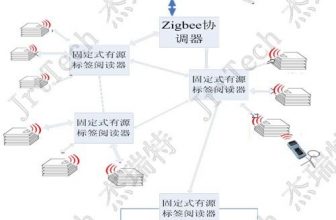
Case study: Decathlon uses RFID tags to make goods smarter
[ad_1]

Decathlon is a French sporting goods retailer with 1,500 stores and an omni-channel evolution. It has a good story in the field of operations and logistics, in which RFID tags are applied.
The retailer has expanded its established RFID program for nearly three years, using tags for all of its products in order to manage inventory and ensure the safety of goods.
This is part of a supply plan that has been provided in cooperation with SML Group for more than five years. It aims to ensure that Decathlon’s supplier network uses RFID stickers and tags, which are sewn into clothes during the manufacturing process.
Assign a separate electronic product code (EPC) number to each RFID item to match the unique product SKU. The resulting item-level tracking improves inventory management and ensures better availability of goods, while also reducing stock outs and improving customer service.
Embisphere manages Decathlon’s RFID program. In addition to inventory management, RFID tags are also associated with electronic product monitoring security tags on high-value items.
This year, Decathlon announced plans to provide a “scan and forward” service in its Dutch store in response to changing customer behavior. The service will allow customers to scan and pay for items on their smartphones, disabling RFID tags so that they can exit without queuing or waiting for checkout.
Decathlon cooperated with MishiPay to launch the product, which started from stores in Rotterdam and Eindhoven. Our idea is to take advantage of the fact that almost all shoppers use mobile phones in stores, which means that the technology is already available.
Sybe De Graaf, CTO of Decathlon, pointed out: “We are always looking for new ways to improve customer experience and eliminate friction in their in-store journey. MishiPay’s mobile self-checkout work is very fast and can be easily expanded.”
A recent study showed that retailers using RFID tags-radio frequency identification-are expected to see their sales increase. The analysis analyzed the use of tags by 10 retailers and found that the highest increase was 5.5%. The research was led by Adrian Beck of the University of Leicester and involved leading retailers and brands including Adidas, C&A, Decathlon and Tesco.
Professor Baker combines face-to-face interviews with quantitative data on business performance. The report found that all research companies’ investments in the use of RFID have achieved positive returns, especially all companies have achieved sales growth due to the increase in inventory generated by the use of RFID.
[ad_2]




